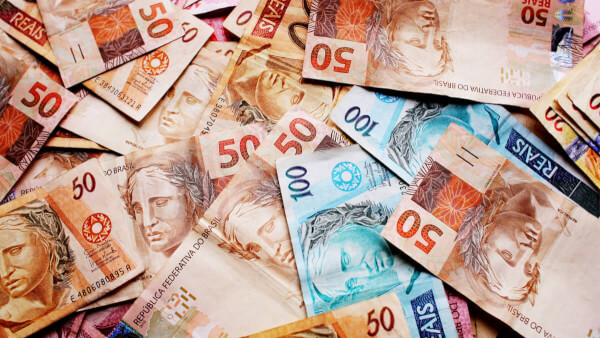Navigating Brazil visa requirements for US citizens
Understand the visa requirements for US citizens traveling to Brazil. Find out if you need a visa, how to apply, and what documents are required.

If sunshine and beaches are your jam, a trip to Brazil may very well be in your future. And while credit and debit cards are widely accepted there, you never know if a small shop or restaurant will be unable to take your plastic, so you’ll want to make sure you have some Real in hand. Getting cash in Brazil is as easy as finding an ATM, but there are still some tips and tricks that will make the whole process easier (and cheaper). Read on to learn more.
ATMs are extremely common in Brazil, and have been for a long time. Even the smallest towns will likely have an ATM. The harder part is finding an ATM that will work with your card. Cirrus and PLUS networks are most common. Most banks in Brazil have ATMs, some inside and some outside. It’s generally safer to use the indoor ATMs.
Online ATM locator tools for Brazilian banks are typically in Portuguese, and therefore will be difficult to use if you’re not fluent. However, banks are pretty simple to find, and most of them will have ATMs inside.
You can also use these tools to find ATMs on common networks:
US, UK and Australian debit and credit cards generally work in Brazil, as Visa, Mastercard, Cirrus and Maestro are all widely accepted. American Express may not be quite as universally accepted.
To use ATMs in Brazil, you’ll need to have a four-digit PIN. Cards in Brazil have been exclusively chip and PIN for several years now, so you may run into trouble if you’re from a country that hasn’t fully adopted chip and PIN cards, like the US. If you only have a card with a magnetic strip, you should probably ask your bank for a chip and PIN card before you go to Brazil, just to be safe.
For most Brazilian ATMs, the maximum withdrawal per transaction is 1,000 Real, though for some machines it may be even lower. After 10 p.m., the limit is reduced at many ATMs to only 500 real per withdrawal, so plan ahead if you’re going to need cash late at night.
You should always let your bank know when you’re going to be travelling internationally, or you risk having your card shut off for suspicious activity. Call your bank before you go to Brazil, and tell them where you’re going, when and for how long. You can also find out if your bank imposes a daily maximum for cash withdrawals on your card, and temporarily increase it if you need to for your trip.
So can you avoid ATM fees when withdrawing cash in Brazil? Some tricks might help. Read on to learn more.
Generally, withdrawing cash from an ATM means you get it at the mid-market rate, or the real exchange rate that you see when you Google Real and your home currency. However, some ATMs will give you the option to view the transaction in your home currency rather than in
Real. This “helpful” dynamic currency conversion allows the ATM to set its own exchange rate, which often gets marked up so the ATM owner can profit off what is essentially a hidden fee on your withdrawal. You should always choose to view transactions in the local currency when using a foreign ATM.
Bank ATMs in Brazil generally don’t charge withdrawal fees, but this can vary. Commercial ATMs may have per-withdrawal fees, and your home bank may charge a withdrawal fee or foreign transaction fee. It’s important to check with your bank ahead of time to see what fees it charges for using foreign or out-of-network ATMs and pay close attention at the ATM terminal to see if the ATM charges any fees.
Your best bet is to get a card that reimburses you for ATM fees and doesn’t charge foreign transaction fees -- that way you’re covered no matter what ATM you use. Otherwise, keep an eye out for in-network ATMs, and avoid ATMs at airports and hotels, as they tend to have higher fees to target tourists. You can also try to make larger and fewer withdrawals to cut down on per-transaction fees.
If you have access to a bank account in Brazil, you can transfer money there ahead of time with Wise, which allows you to move money at the exact mid-market rate, paying nothing but a small transfer fee -- no hidden fees or markups.
Armed with this info, you should have no problem getting cash during your time in Brazil. Safe travels!
*Please see terms of use and product availability for your region or visit Wise fees and pricing for the most up to date pricing and fee information.
This publication is provided for general information purposes and does not constitute legal, tax or other professional advice from Wise Payments Limited or its subsidiaries and its affiliates, and it is not intended as a substitute for obtaining advice from a financial advisor or any other professional.
We make no representations, warranties or guarantees, whether expressed or implied, that the content in the publication is accurate, complete or up to date.

Understand the visa requirements for US citizens traveling to Brazil. Find out if you need a visa, how to apply, and what documents are required.

Are you considering travelling to Brazil? It’s the world’s fifth largest country and it’s jam packed with culture, cuisine, and charm. From vibrant cities,...

Your complete guide to money and banks in Brazil